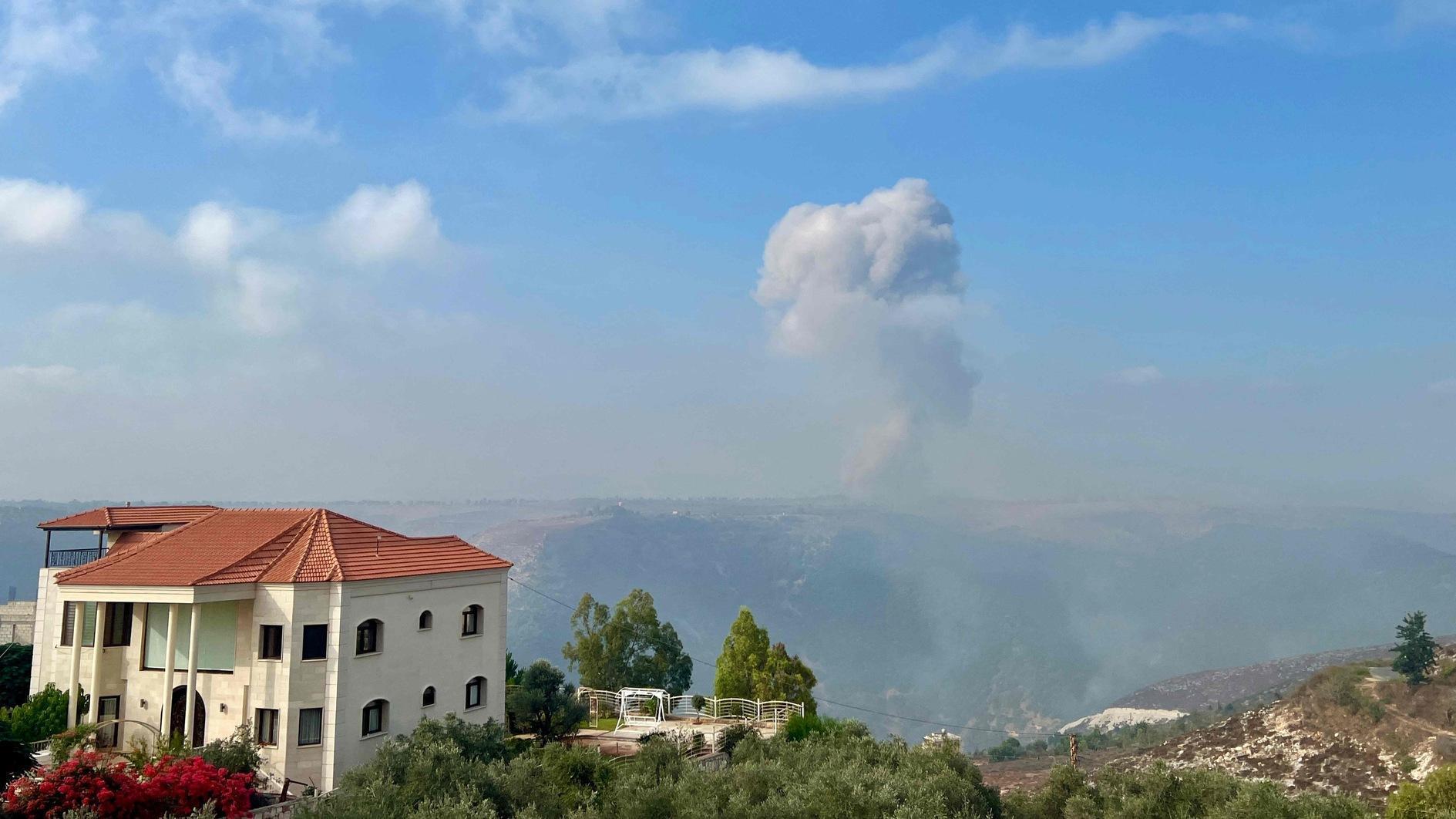
Israel launched a wave of airstrikes across southern Lebanon on Aug. 25 in what it said was a preemptive strike on Hezbollah, with the group responding that it launched hundreds of rockets and drones to avenge the killing of one of its top commanders last month.
The Israeli military said its fighter jets destroyed "thousands" of Hezbollah rocket launchers "aimed toward northern Israel and some were aimed toward central Israel,” far from the border.
The Lebanese group Hezbollah, on the other hand, that it had launched hundreds of rockets and drones deep into Israel as part of the “first phase” of its response to Tel Aviv's assassination of its senior commander Fouad Shukr.
Hezbollah launched "a large number of drones" and "more than 320" Katyusha rockets targeting "enemy positions" across the border.
In a statement, it said that “the first stage of our response to Shukr's assassination has been successfully completed."
Lebanon's Health Ministry reported at least three dead in Israeli strikes in the country's south. No casualties were immediately reported in Israel.
Israeli military spokesman Rear Admiral Daniel Hagari said his country's strikes were meant "to remove the threats aimed at the citizens of Israel.”
Another military spokesman, Nadav Shoshani, said Hezbollah's strikes were "part of a larger attack that was planned, and we were able to thwart a big part of it this morning.”
Israeli daily Yedioth Ahronoth said the Hezbollah attack was planned to target the Mossad headquarters and a military intelligence unit for electronic espionage.
The government declared a 48-hour state of emergency, but by 7 a.m. (04:00 GMT) flights had resumed at Israel's main international airport after a brief suspension.
Israeli Prime Minister Benjamin Netanyahu convened his security cabinet yesterday and vowed "to do everything to... return the residents of the north safely to their homes.”
Hamas hailed strikes by Hezbollah against Israel, calling it a "strong and focused response” and “slap.”
The Iran-backed Houthi rebels in Yemen also praised the Hezbollah attack and declared that their own response for an Israeli strike on a key Yemeni port on July 20 was "definitely coming.”
The United Nations and Lebanon's prime minister urged de-escalation.
The deaths of Shukar and Hamas political leader Ismail Haniyeh in Tehran ratcheted up concerns that Israel's war against Hamas in the Gaza Strip could spiral into a broader regional conflict.
Intense diplomacy in recent weeks has sought to avert a broader response to the killings of Shukr and Haniyeh, which was blamed on Israel, as Gaza mediators were making their latest push towards a ceasefire and hostage release deal.